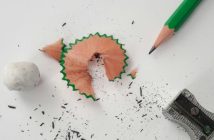
Tell us about yourself
My name is Doreen Graham and I’m from British Columbia, Canada. I lived near Vancouver and moved to Beijing in September of 2013. I have 5 children and all of them are grown up now. I am the principal of Beijing Collegiate Academy (BCA).
When you were a kid, what did you want to be when you grew up? Who was your childhood hero?
When I was a kid, I wanted to be a teacher, an actress, a minister and a secretary so I spent many hours with my friend pretending to be all of those things. We also put on plays and musical performances for my friends’ parents. I didn’t have a TV until I was 10 years old so my hero was a character in the book, “Pollyana,” which I read when I was 8 years old. After that I added good teachers to my hero list as I went through school. Looking back, I noticed that the most common behavior trait of my heroes was stick-to-it-ness, courage in not letting others walk all over you, and being caring towards others.
What kind of student were you as a child (e.g. the troublemaker, teacher’s pet, class clown, etc)?
I was a good student in primary years; worked hard, loved to accomplish and get recognition for having done well. In Grade 3, I won the top honor for academics. I had wanted to win the award, but didn’t really think I was as good as the few elite girls in the grade so winning gave me great confidence. Things changed in high school, especially by Grade 10. I spent time trying to figure out how I fit in socially and my grades suffered without the extra effort. I was not particularly motivated and figured I could do well when I was ready and saw the benefits. In particular, I was very critical and not cooperative with teachers who made us copy notes from the board instead of teaching us the course work and creating stimulating classes. (Years later, research proved that this was not an effective way to learn!) By the time I was in Grade 12, I went to classes that I figured were important to my learning. However, when I was in Grade 12, the PE teacher and principal agreed that I could learn about being a teacher by assisting in the Grade 8 PE class so they created a course called Community Recreation. I got all A’s in the course. This was my first step towards realizing my dream of becoming a teacher.
What was your image of the school principal when you were a student? How do you describe your image now?
I had great respect for my principals. They were strict, but human. I was big into that 1960s mentality in high school of wanting people to be real, not putting up a false front and wielding power just because they could. My image now, as a principal, is someone to be regarded with respect, but someone who is also approachable. Students are willing to share their ideas and personal news with me, yet when they are misbehaving, a look from me sets them into making better choices. As I principal I like to coach children in using appropriate ways to express themselves and to have self-control.
What kind of jobs did you have before becoming a principal/headmaster?
My most unusual job was being a teacher in a small Aboriginal village in Northern British Columbia.
How do most people respond when they find out you are a school principal/headmaster? How do your kids or your spouse introduce you to their friends?
I don’t usually tell them, unless it comes up in conversation. They either say, “This is my mom,” or “This is Doreen, my wife.” When they find out I’m a principal, they like to ask questions about schooling and personal matters about their kids. On some occasions others have remarked that they knew I was in education, but that is typically from other educators who know the idiosyncrasies of other teachers.
What is a typical day like in the life of a principal/headmaster?
Each day is different so it’s hard to define a typical day! I figure my day was worth getting up for if I can have a good chuckle and get someone else to chuckle too.
In all your time as an educator, what is the most important lesson you’ve learned?
Every child has something special about him or her, and it is my job to bring out his best. I found in British Columbia, in the inner-city schools I worked, many kids are hurting emotionally and have been kicked so many times that they feel worthless. One year, I had a student like that in Grade 6, She was a bigger girl compared to the others, and awkward socially. She was shy and lacked confidence and was not part of the popular group of girls. I often saw her shrink into the wall to avoid getting involved. I didn’t connect well with her and struggled to give her the right amount of attention at first. But she loved to write and so did I so we had many conversations about writing and making word choices, and the nuances of words. I encouraged her to explore with language and she allowed me to read out her writing to the class. In doing so I saw how proud she was and the other girls started to respect her. By the end of the year, she was socializing with the girls, they often asked for her help, and she was genuinely excited about the year-end party at a fellow student’s house. She wrote a poem on a very large piece of cardboard, decorated it and then gave it to me at the end of the year. I learned from her that if I look with my heart, I will see a treasure in every child. I still have the poem on the card and it is a good memory of the lesson I learned that year.
Meet the Principal/Headmaster is a new beijingkids blog series designed to give the Beijing community a better understanding of who our education leaders are in our city. If your school is interested in being featured in our Meet the Principal/Headmaster blog series, please contact the School Editor, yvetteferrari@truerun.com
Photo courtesy of Doreen Graham



